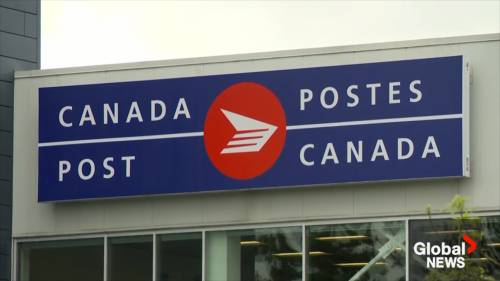In a significant development for Canada’s postal system, Canada Post has successfully negotiated a labour agreement with the Canadian Postmasters and Assistants Association (CPAA), its second-largest union representing approximately 5,400 employees who operate rural post offices across the country.
The tentative deal, announced late yesterday, comes after months of intensive negotiations and averts what could have been a potentially disruptive work stoppage. According to sources close to the negotiations, both parties expressed satisfaction with the terms reached, which address key concerns including wages, working conditions, and job security.
“This agreement represents a balanced approach that recognizes the vital role our rural postmasters play in connecting communities across Canada,” said a Canada Post spokesperson. “We’re pleased to have reached terms that are fair to our employees while ensuring the sustainability of our operations.”
The CPAA, which represents postmasters and assistants primarily in rural and suburban areas, had previously raised concerns about increasing workloads and the challenges of maintaining service levels in remote communities. The new agreement reportedly includes provisions addressing these issues, with improved staffing formulas and workload management systems.
Financial analysts following the postal sector note that the agreement comes at a critical time for Canada Post, which continues to navigate the dual challenges of declining letter mail volumes and increasing parcel deliveries driven by e-commerce growth.
“The stability this agreement provides is essential,” explained Dr. Elaine Marsh, professor of labour economics at the University of Toronto. “Rural post offices form the backbone of Canada Post’s national network, and service disruptions would have had disproportionate impacts on remote communities that rely heavily on postal services.”
The agreement follows a similar deal reached earlier this year with the Canadian Union of Postal Workers (CUPW), Canada Post’s largest union. Together, these agreements secure labour peace across most of Canada Post’s operations for the foreseeable future.
For rural communities, where post offices often serve as community hubs providing essential services beyond mail delivery, the agreement ensures continuity of service. Many small businesses in these areas depend on reliable postal services for shipping products, receiving supplies, and maintaining communication with customers.
The timing of the agreement is particularly significant as Canada approaches the holiday season, typically the busiest period for mail and parcel delivery. Last year, Canada Post delivered over 1.5 million parcels daily during peak periods in December.
Government officials have welcomed the agreement, with the Minister responsible for Canada Post emphasizing the importance of maintaining postal services that connect Canadians from coast to coast to coast.
The agreement now moves to a ratification process, with CPAA members expected to vote on the proposed terms in the coming weeks. If approved, the new collective agreement would take effect immediately and establish labour stability for the specified term.
As our increasingly digital society continues to transform communication patterns, what role will traditional postal services play in connecting Canada’s diverse communities in the years ahead?


















